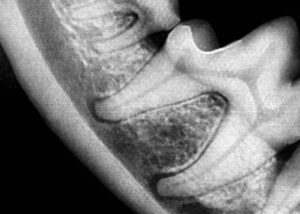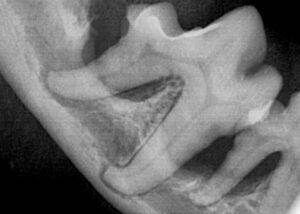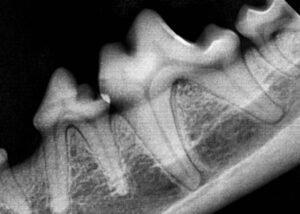What are some causes of dental problems in dogs and cats?
Although cavities are not as frequent in animals as they are in people, they can have many of the same dental problems:
- Periodontal disease
- Fractured teeth or roots
- Teeth and root infection or abscess
- Tumors or cysts on the gum, the tongue or the buccal mucosa
- Misalignment of the teeth and bite also called malocclusion
- Fractured jaw
- Defect of the palate (cleft palate for example)
Periodontal disease is by far the most frequent dental condition in companion animals, the first signs of periodontal disease are usually observed around 3 years of age, and will continue to worsen as the pet gets older unless appropriate measures are taken.
There are 5 stages of periodontal disease from 0 (no disease) to 4 (severe).
Periodontal disease starts with plaque formed by soft accumulation of bacteria and debris with then becomes tartar. Tartar located under the gum line is damaging to the root of the tooth and leads to infection of the tissues attaching the toot to the jaw bone and the jaw bone itself.
Other health problems have been associated with early periodontal diseases, including kidney dysfunction, liver dysfunction or heart muscle changes.



